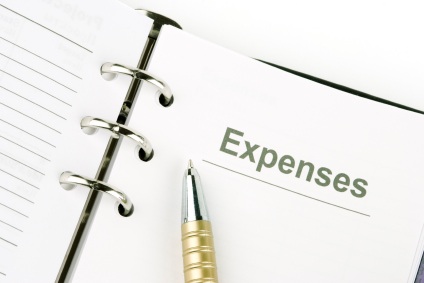Responsiveness – The Objective of the Sales Professional
We have discussed responsiveness before in this journal. Being responsive and exceeding all expectations can separate you from other sales professionals and is a step toward a status that gives you a special preference (Black Sales Journal 1/13/2011 Deepening Customer Relationships). We will delve into responsiveness, defining what it is, and how it works, and the advantages that it gives.
For the purpose of this journal:
- Responsiveness and its importance are in the eyes of the customer.
- Responsiveness is defined by the customer’s expectations.
- Organizations in total should be responsive, yet we are only going to focus on the sales professional.
Areas Needing Responsiveness
There are many general aspects of responsiveness in sales. As mentioned above, there are many activities that are deemed important. Some simple examples are shown below:
- Answers the phone and returns calls promptly
- Keeps commitments
- Provides answers to inquiries and questions as soon as practicable
- Stays in touch – Communicates
- Provides requested information promptly
We have to be more complete than this though. It is not enough to just outline what the areas are you must personally set standards as to what makes you…well responsive. If you look at them without the customer, you will not necessarily achieve the label of being responsive, so I will suggest some activities that will help give you the assurance that you meet and exceed the customer’s expectations.
Communication and Agreement is at Its Heart
There must be agreement on important aspects of responsiveness before you can ever exceed expectations. Realistically you don’t stand much chance of consistently meeting and exceeding your customer’s expectations without agreement on what those expectations are, and how it is measured.
Communication is at the heart of getting that agreement. Here are the steps to get you there:
Step 1. -Write a list of actions and standards that you believe show responsiveness. These items will serve to give you a basis for the discussion.
Step 2. – Meet with the customer and ask what activities are the most important in their interaction with their sales professional. Use some of your list to start the discussion, yet remember about the points above regarding responsiveness being defined by customer expectations. Agree on the items and the measures.
Step 3. – Define the review periods involved. Basically it sounds like this, “Thanks for working with me to define these, and we will review them when we review our contract early next year.
That is all that needs to be done.
Here is an example of some constructed activities and measures:
Activity: Product proposals/quotations
Agreed Standard (example): Respond with proposal quotation within 24 hrs
You get to this standard by having a brief discussion with the customer regarding the importance of each activity and discussing the customer’s expectations on each Agreed Standard. If you have those discussions, you may determine that proposal delivery is important, and the customer needs and expects them within 24 hours. If you agree, because your workflow will allow, you know a valuable baseline that you can meet. You can then move the exceed expectations by delivery within 12 or 15 hours.
Another one might be as simple as this:
Activity: Provides summaries of all products purchased by each customer location on request.
Agreed Standard (example): 8 hours
The customer needs them in the same day to respond to request from his/her manager. When the requests come, they always seem to be an emergency. You recognize that your company’s service unit that does this work operates efficiently so you can agree to the 8 hours, yet deliver in 4 hours, obviously exceeding expectations.
One last example:
Activity: Delivery of product samples and specs of your company’s product
Agreed Standard (example): 3 days based on the territory to be delivered to and the method of shipment.
The customer needs product samples to use in their technical presentations, and in cases they need specifications including tolerances and other technical information. This information may make or break the sale, and other sales professionals have lost the business based on delays in this area. Your responsiveness promise will be determined by your organizations ability to meet the agreement. You should be in a situation where you know well what the organization does, and your agreement should be structured so that you can meet the 3 days when that is the agreement, yet have a plan to exceed well in hand.
All activities and measures should be specific and measurable.
Ask for Feedback
So as you proceed with meeting and exceeding the customer’s expectations there is a need for a “true up” point. This is where you have a discussion with the customer on how well you succeeded in meeting his/her expectations. It is in essence a ‘performance evaluation’ on your service. This was discussed in Black Sales Journal April 28, 2011-Should You Ask Your Customer for Feedback?. It is the ultimate opportunity to show that you listened and respected what the customer thought was important. If you have done your job, you will most likely get an endorsement for another half year, or year, depending on how long the evaluation period is.
You may not think this is important, yet in reality it is probably informally being done without your involvement and if you don’t proceed to formalize the process and become part of it, you may be on the outside looking in.
The advantage of soliciting feedback is that you care enough to ask, and the customer is telling you what they need. Together you are reviewing whether those expectations on responsiveness are being met. That discussion is time well spent.
You are the Scorekeeper
If this activity is important, it should be measured. You have a better chance of measuring it correctly than anyone else. If you are both measure it that is even better. That means that the customer is taking it seriously. Correctly measure each of the items that you come to agreement on, and be prepared to provide a brief report on these items.
Take the lead and set the date for the discussion, doing the necessary work to put it into report form. I will make the bet that none of the past sales professionals have done it, and there is a good possibility that all of the succeeding ones will be asked to keep track of it.
This will make for a serious relationship. You will most likely keep the relationship and the business, and as you manage the process, there will be an appreciation for your diligence. You also have the chance to push for even more flawless results.
Your comments are always welcome.
 June 16, 2011
|
Posted by Admin9!
June 16, 2011
|
Posted by Admin9!

 Categories:
Categories:  Tags:
Tags: 
Your Comments